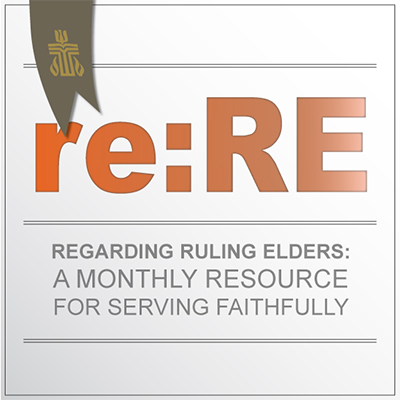Ruling elder Dustin Wilsor declared, “I love to preach! It was my first call. I am definitely called to preach!” He continued with a quote from one of his seminary professors:
“You live your life homiletically. As you witness the world around you, you are figuring out how that intersects with Scripture.”
In addition to obtaining a Master of Divinity degree, Wilsor also earned a Master’s in Theology and the Arts. His research focused on the theology of musical theater, resulting in his thesis entitled “Prepare Ye the Way of the Lord.” He says that theater in general, but musical theater to an exponential degree, is the only art form where the audience changes the art. Because every time you see a show, it is different.
He related a story about a time he filled in, preaching for a friend who was ill. Though the friend encouraged him to select a Scripture passage with which he was more comfortable, Wilsor, not one to turn away from a challenge, chose the same one his friend had selected. It took some time for reflection, and he had very little time, but Wilsor finally realized that the crux of the message was that change is inevitable and it’s vital to embrace change. He was relieved as he had written about that before!
It is often difficult to adapt a previously-written and preached sermon, because each one is so timely — speaking to a particular moment in the culture. And, of course, culture moves forward; it inevitably moves on.
So, he wrote a sermon about — sourdough!
Why sourdough? Wilsor explained that sourdough grows; it grows on its own. Sourdough is constantly changing, as it is a living organism — a mixture of yeast and bacteria. Leave it on the counter and it grows; it changes and it expands, to “the north and to the south, into the east and to the west.” Because of this, you’ve got to take a part of the sourdough starter and discard it before baking, or better yet give it away. Sourdough cultures continue to rise, sour, and mature.
When asked about how it came to be that Wilsor was called to serve as a ruling elder, he shared that he always knew that at some point, when the time was right, he would be asked to serve in that way. He was very active in his congregation’s Community Engagement Committee, which was engaged with social justice, so it wasn’t a shock when the nominating committee at Woodland Park Presbyterian Church approached him.
Ultimately, Wilsor wants to effect positive change in the church. “But if you want to effect real positive change, you have to be able to see the world bigger. That’s what being a ruling elder has given me. Because I was on session, I was called to serve as a commissioner to presbytery. Then while I was active in presbytery, I was asked to serve on different committees there, and I got to know people, to see other churches, to see my space get larger. Then I was called to serve as a commissioner to the General Assembly, and now I see my space even larger. Otherwise, I don’t think I would have seen it.”
For Reflection:
- Serving as a ruling elder requires change and growth. How have you experienced these aspects within your own service?
- As a sourdough starter needs to be cared for as it grows, how have you been nurtured in your call?
- As he prepares to preach, Dustin Wilsor draws on his education and background in musical theater. What talents and gifts, life experiences and education would you draw on to live out your responsibilities as a ruling elder? What might that look like?
valerie izumi is a ruling elder serving the Office of the General Assembly as an assistant stated clerk, coordinating the General Assembly nominations process.
Throughout 2023 and 2024, monthly Regarding Ruling Elders articles alternate between a deep dive into the ways ruling elders discern and measure the life of a congregation through the ministry of members and stories about how ruling elders are using their call and gifts as they move within and beyond the walls of the congregation.
Subscribe to receive notifications of monthly Regarding Ruling Elders articles. Visit the PC(USA) Leader Formation website for more resources for ruling elders and deacons. For more information, email Martha Miller, editor of Regarding Ruling Elders.

